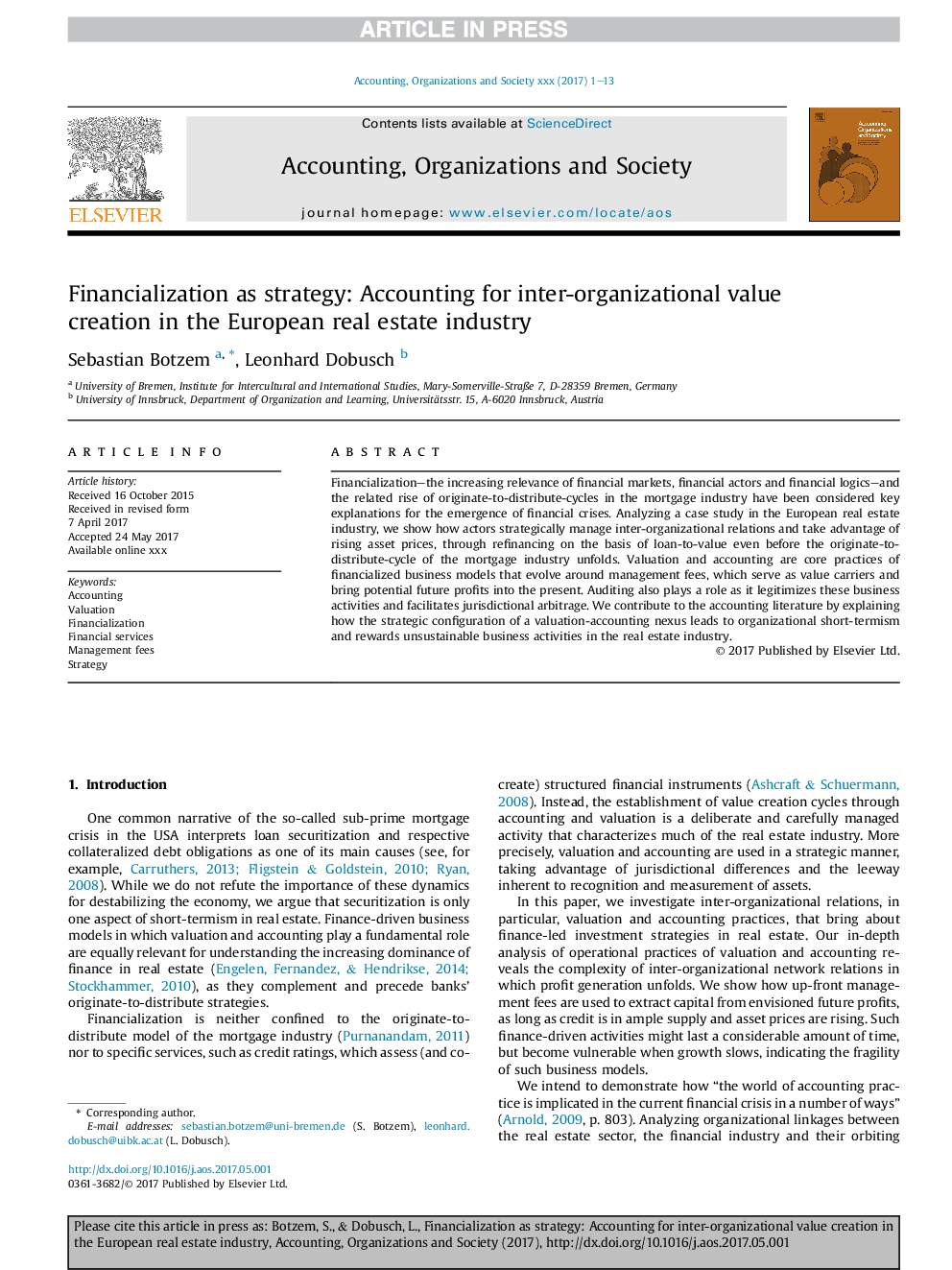| Article ID | Journal | Published Year | Pages | File Type |
|---|---|---|---|---|
| 5033336 | Accounting, Organizations and Society | 2017 | 13 Pages |
Abstract
Financialization-the increasing relevance of financial markets, financial actors and financial logics-and the related rise of originate-to-distribute-cycles in the mortgage industry have been considered key explanations for the emergence of financial crises. Analyzing a case study in the European real estate industry, we show how actors strategically manage inter-organizational relations and take advantage of rising asset prices, through refinancing on the basis of loan-to-value even before the originate-to-distribute-cycle of the mortgage industry unfolds. Valuation and accounting are core practices of financialized business models that evolve around management fees, which serve as value carriers and bring potential future profits into the present. Auditing also plays a role as it legitimizes these business activities and facilitates jurisdictional arbitrage. We contribute to the accounting literature by explaining how the strategic configuration of a valuation-accounting nexus leads to organizational short-termism and rewards unsustainable business activities in the real estate industry.
Related Topics
Social Sciences and Humanities
Business, Management and Accounting
Accounting
Authors
Sebastian Botzem, Leonhard Dobusch,
